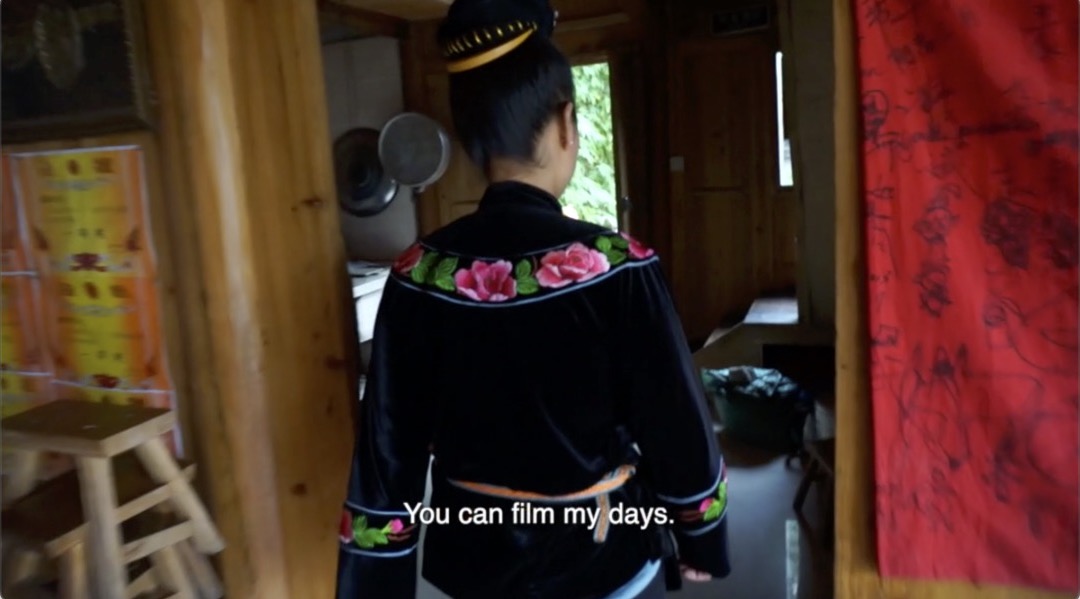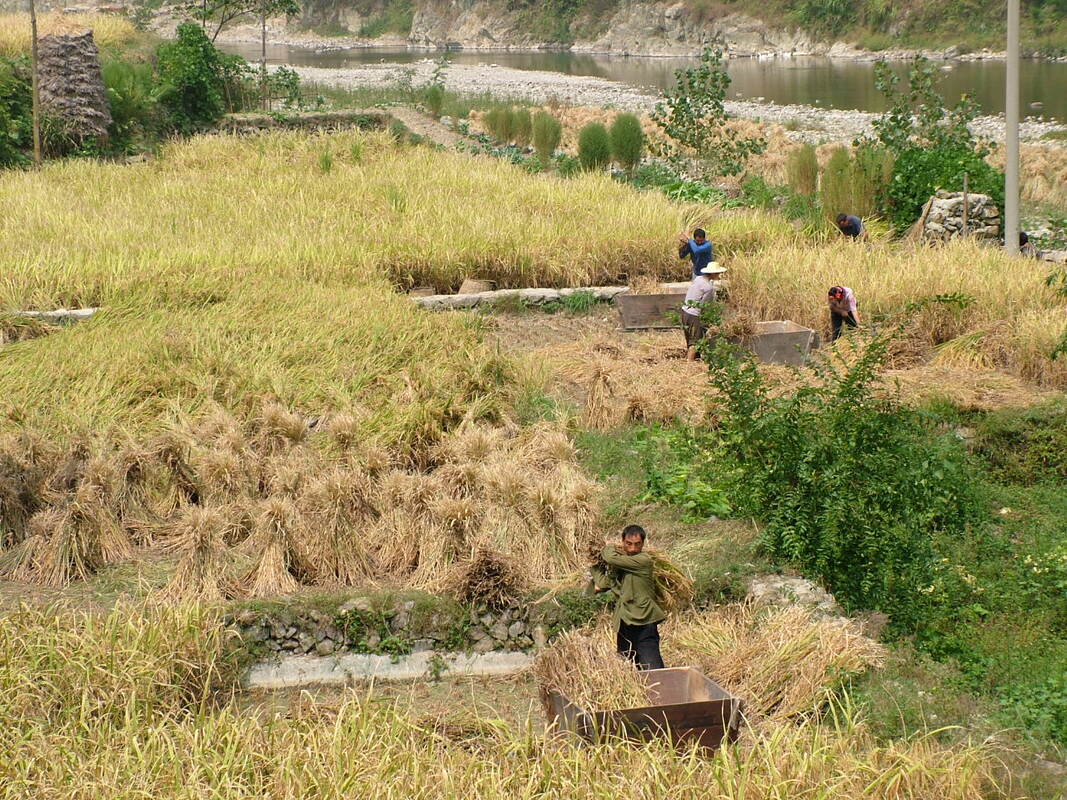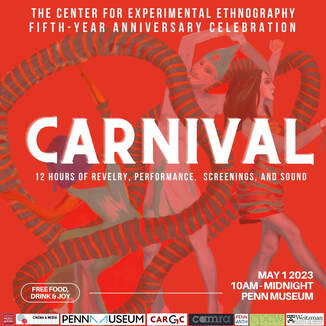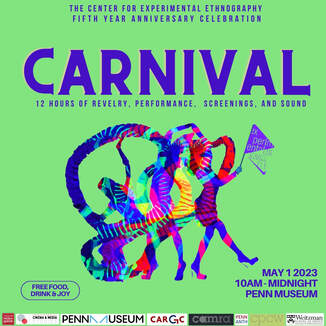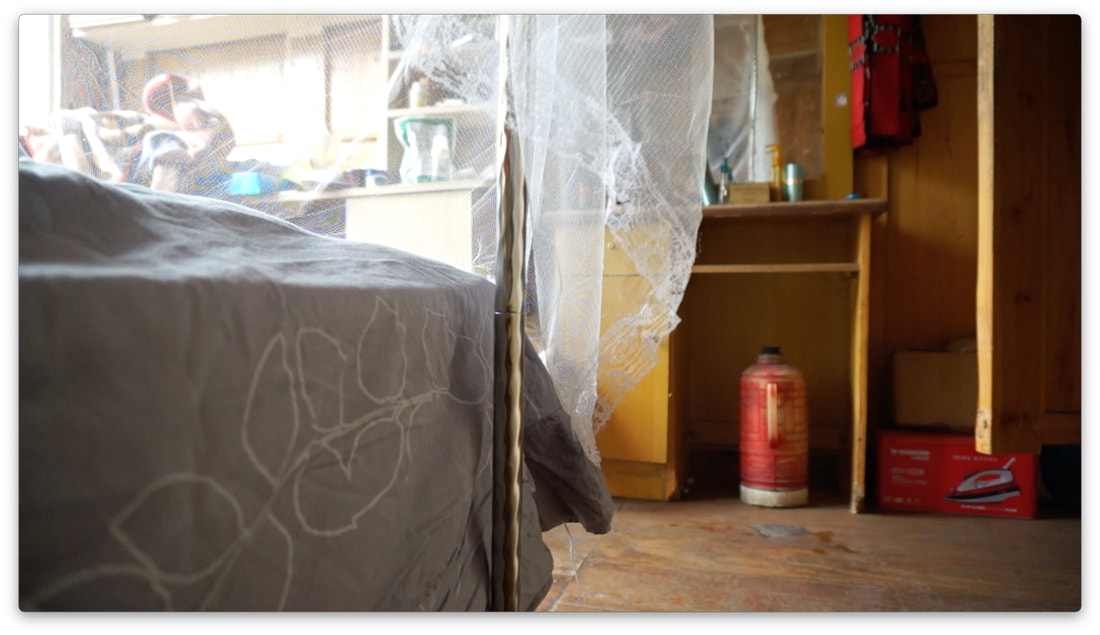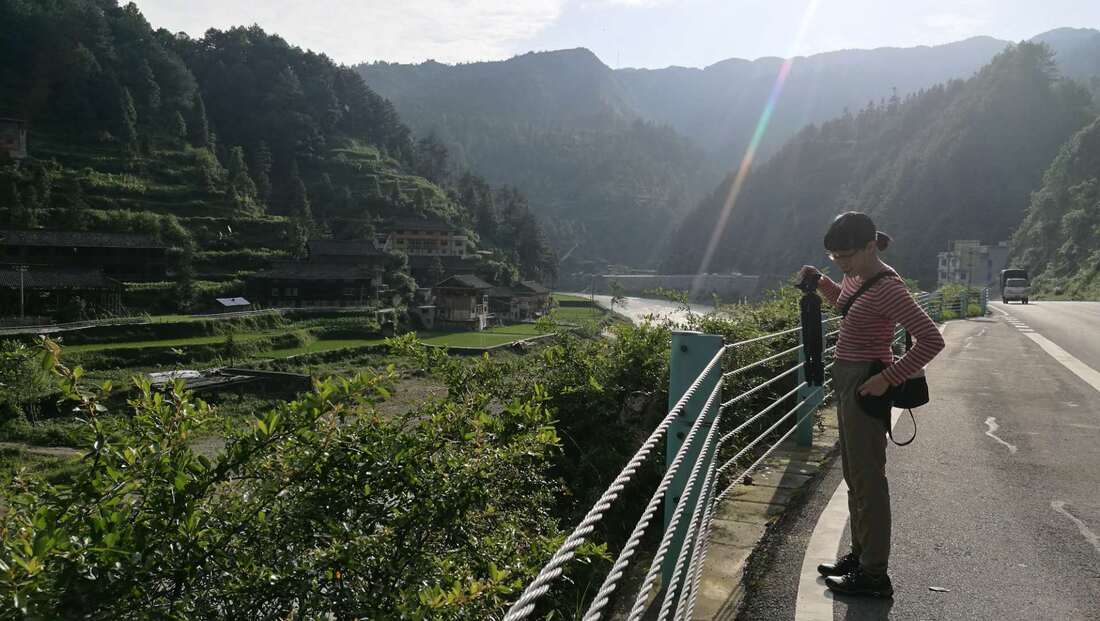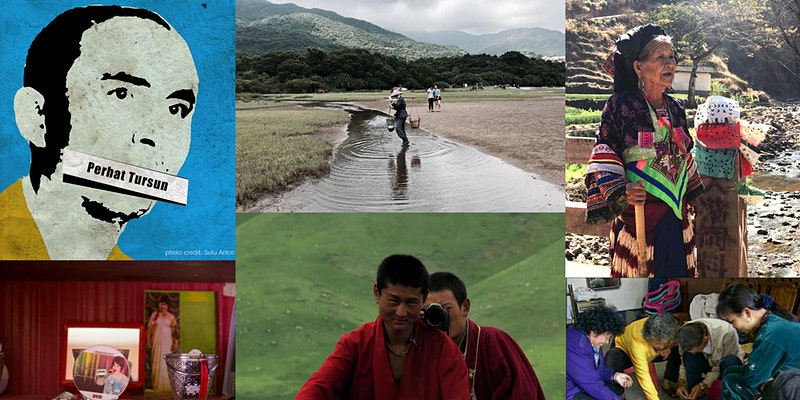|
As the German Sommersemester gets underway, I'm excited to be a part of the upcoming speaker series for Stadtlabor for Multimodal Anthropology, a research initiative based at Humboldt Universität zu Berlin. I'll be speaking about ethnographic portraiture, drawing from my slowly-but-surely-almost-there film, These Days, These Homes.
Details: "An N of 1: Multimodal Experiments in Ethnographic Portraiture" 10 June 2024, 1600-1800 IfEE (Anton-Wilhelm-Amo Strasse 40/41, 10117 Berlin) On December 6, 2023, I'll be taking part in an online discussion about research in Southwest China. The event is organized by the University of Westminster (UK) in their series, China Deconstructed. For a link to register (and to get the ZOOM link) as well as a panel description and speaker biographies, see this post on the MCLC Blog.
During the 2023 AAA/CASCA meetings in Toronto, I'm excited to be a part of two panels:
1. As a discussant for the panel Rural Modernities, Rural Moralities: The Gendered Politics of Social Transitions, on Wednesday 15 November 2023 from 4:30-6:15 p.m., and 2. As a co-author for a paper titled "Translating Sustainability into Somatic Experience: Renderings of Eco-Cities in Southeast Asia" in the panel The Translation Machine, on Saturday 18 November 2023 from 2-3:45 p.m. Here's a visual teaser for the paper on eco-cities... To celebrate spring, renewal, and five years of the fabulous Center for Experimental Ethnography at Penn (where I was a fellow in 2021)...I'm so excited to be part of this CARNIVAL on May 1, 2023.
Register online for over 12 hours of events, music, performance, and art! I'll be part of a discussion on future cities and future countrysides, based upon ideas and musings from my current film project. It's starting to feel like 2018 again with upcoming travel and talks in Boston and then Ithaca!
Next week, on Friday March 17, I'll be at the Association for Asian Studies conference in Boston and giving a talk on natural environments and racialized bodies in Dhunkar Kyab's short documentary, Tourists. This paper is part of a panel on the spatialization of race and ethnicity in China, and I'm excited to be a part of this conversation. More details here On Friday April 14, I'm discussing work-in-progress as part of the Anthropology colloquium series at Cornell University. I will discuss my current film, These Days, These Homes, which explores gender, domesticity, and development in rural minority China through what I am calling an ethnographic portrait film of two Miao women. To watch a preview of the film, go here. I am so thrilled to be invited to screen my 2013 film, Peasant Family Happiness, at the Ethnographic Museum of the University of Zürich in July as a part of the exhibition, "Hidden Complexities: Unfolding Miao Women's Textiles." I will be present after the screening for an in-person Q&A, and I really look forward to the chance to talk about the film with audience members! Please see below for details and a link to maps and the museum website.
Thursday 7 July 2022, 19:00-20:30 CET Screening of Peasant Family Happiness (2013) In-person Q&A to follow Event link and map Location: Ethnographic Museum, University of Zürich Völkerkundemuseum, Pelikanstrasse 40, 8001 Zürich Raum: Hörsaal, PEA The Contest over "Indigeneity": Film and Ethnography in China, Hong Kong, and Taiwan
An online film and conversation series curated by Jenny Chio Event website: www.filmandethnography.org Register via the website to receive the password to view films between Friday, April 23 and Friday, April 30, 2021. You will also receive the Zoom link to join the live discussion on Thursday, April 29, 2021 at 7 pm EST. The film in the Hong Kong program requires separate registration; please visit the event website for details. This online event, featuring eleven films, three pre-recorded conversations between filmmakers and scholars, and a live Zoom discussion, examines Indigeneity in the People’s Republic of China, Hong Kong, and Taiwan. In each political space, “Indigenous” has come to represent and symbolize the different stakes of identity, culture, and heritage in the modern world, while grappling with ongoing political tensions around national sovereignty, China’s global influence, and social solidarity. The films and speakers all approach Indigeneity from their own personal backgrounds and experiences as citizens, artists, and scholars from and working in China, Hong Kong, and/or Taiwan. Pre-recorded conversations between the filmmakers, curator Jenny Chio, and invited scholars can be viewed on the event website (no password required), along with an essay by Prof. Chris Berry (Film Studies, King's College London). My newly published essay, "Theorizing in/of Ethnographic Film," is available as a free download from Routledge!
The chapter is part of the wide-ranging Handbook of Ethnographic Film and Video, which examines the current state of ethnographic media-making from theoretical and practical perspectives. My chapter is motivated by a series of overly ambitious questions regarding the state of ethnographic film in contemporary anthropology and cognate disciplines. Namely, what are the methodological, epistemological, and conceptual relationships between ethnographic filmmaking and ethnographic theorymaking today? How can ethnographic film help produce, or at least help inform, better ethnography, and vice versa? And, perhaps most importantly, how can ethnographers, filmmakers, and ethnographic filmmakers go about actually doing better at whatever it is that they seek to do (producing social scientific knowledge, film, or some combination thereof )? From May to July 2020, I was a returning fellow at the Morphomata Center for Advanced Studies at the University of Cologne, Germany. Although the fellowship was held virtually, due to travel restrictions and the global COVID-19 pandemic, it was nonetheless a wonderful opportunity to think about and discuss portraiture, life-writing, and questions of representation with an amazing group of fellows. My MLC lecture, on social media and social distancing, is available online. 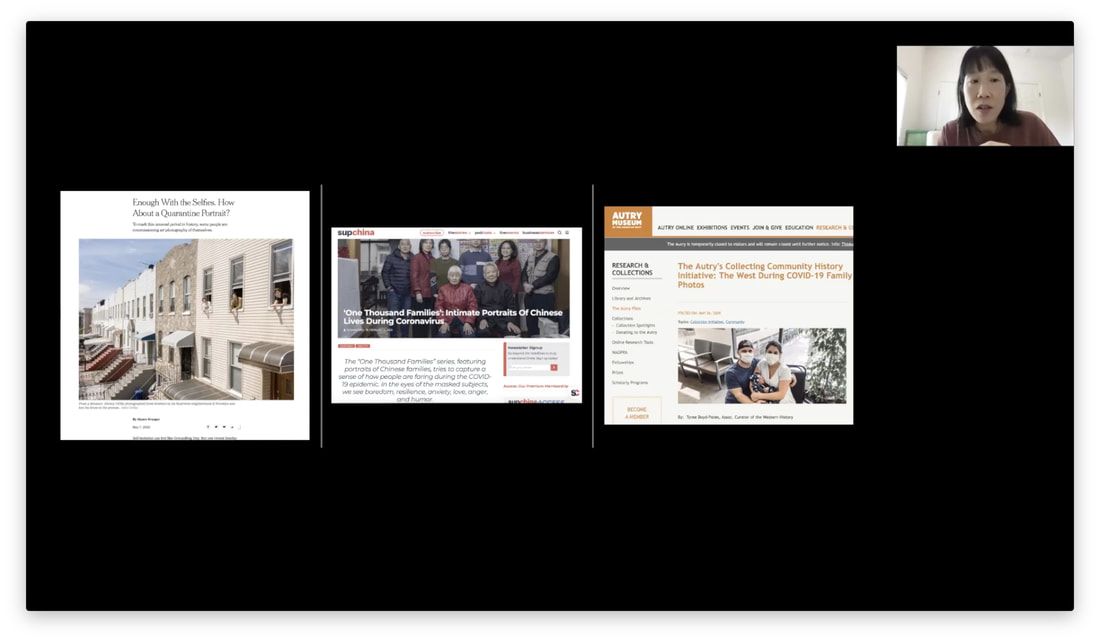 An Archive for Now: Portraiture, Social Media and Social Distancing Virtual MLC Lecture held via Zoom on 29 June 2020 Watch the lecture here! Lecture abstract: This talk will reflect on some interconnections between social media and social distancing that have emerged over the past six months or so. In places where relatively high-speed Internet access is assumed to be accessible, much of social life has moved online (making infrastructural and economic inequalities unavoidably obvious). Socializing in a time of social distancing now appears as a series of portraits. Faces flicker and sometimes freeze. Heads and shoulders appear and disappear in the windows of a Zoom meeting. Comments and chats stand in for conversation. Video cameras turned off now come across as disengagement or, worse, refusal. Quarantine photographs turn everyday items into portrait props; backgrounds reveal commonalities and inequalities. The vertical smartphone camera frame captures bodies and faces, the former aggravatingly small and the latter uncomfortably close. But at the same time, this increased reliance on social media has spurred widespread desires to build an archive, for now, of life in the time of COVID-19, perhaps as a way to make sense and maintain some control. Countless projects to record and remember, and to create and collect, are underway at universities, museums, and other public institutions around the globe. What, then, does a portrait of social distancing look like, and what might it mean, in a moment when collective memory is driven by social media? 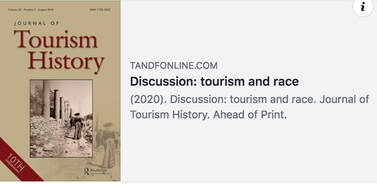 Race is a topic that must be talked about -- that much has been made painfully clear in the last days, weeks, months, and years. While issues of policing, structural violence, and institutionalized racism are absolutely vital to unpack and rethink, it's also critical to examine how race informs and shapes aspects of our collective social lives that might, at first, seem less relevant. I am grateful to be a part of a discussion on tourism and race, which has just been published in the Journal of Tourism History. Moreover, I am humbled to be in the company of a number of amazing scholars whose work directly investigates and critiques the history and persistence of racism and injustice in contemporary tourism (and tourism studies). Read the discussion here. |
Archives
April 2024
|
